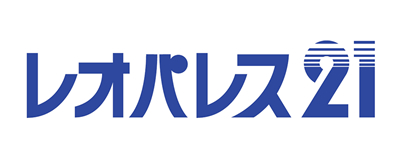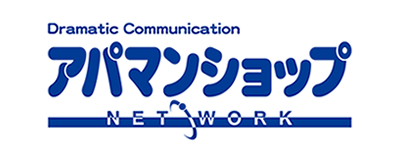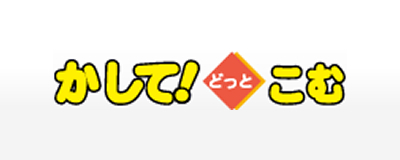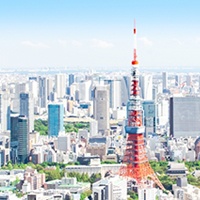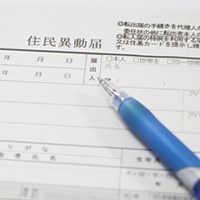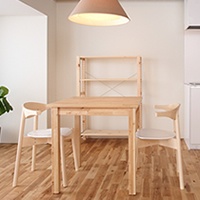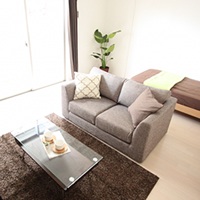Apartment Hunting In Japan: Fees, Process, and rules
- Students
- Working Holiday
The last renewal day|
- Facebook()
- X
- LINESend this page by LINE


For foreigns planning to go on a working holiday, study, or work in Japan, renting an apartment in this unfamiliar land can involve many unclear processes and rules. This article will explain the process of hunting an apartment in Japan, the documents and fees needed for renting, and will clarify the rental-related terms used in Japan. Whether you're planning to study, work, or take a working holiday in Japan, this guide is for you. It's designed to make the process of renting in Japan smoother and to help you take your first step towards starting a new life in Japan.
Recommendable Website to Search Japanese Rental Apartments
Although the rent for Leo Palace 21's apartments in Japan may be slightly higher, the convenience they offer is significant. Leo Palace 21 provides furnished apartments with appliances, which means there's no need to find a Japanese guarantor. Once the lease is signed, you can move in immediately, avoiding many cumbersome procedures. In addition to long-term rentals of one year, they also provide short-term monthly rentals. The rent conveniently includes utility bills, gas, and internet fees, so you don’t need to sign up for these services separately, which is very convenient. Moreover, their official website is user-friendly for international visitors, featuring language options such as English, Chinese, and Korean in the top right corner, making it easy for foreigners who don't understand Japanese to navigate the site. For new students, they offer special deals, making it a cost-effective choice for those planning to study in Japan and a great way to reduce housing expenses.
Apaman Shop provides extensive information about renting in Japan, including rankings of popular rental locations near stations (areas) and a guide to the Japanese rental process. You can filter houses according to your needs by selecting options such as "No Guarantor Required," "No Key Money or Gift Money," or "Women Only," making it easy to find the ideal rental that meets your criteria. Inquiries about renting in Japan can be made directly via email, and they also provide online consultations and virtual house viewings. This means you can make inquiries online without having to be in Japan, which is incredibly convenient. You can save your search criteria and the Japanese houses you are interested in. Additionally, besides searching for regular Japanese apartments and suites in buildings, if you are looking for a Japanese Share House, you can quickly filter out suitable Share Houses by entering "シェアハウス" (Share House) in the keyword search box (フリーワード検索) at the top right of the website.
Contents
The Process of Renting an Apartment in Japan
The process of renting an apartment in Japan typically involves searching for an apartment, arranging viewings, submitting applications, signing a lease, paying related fees, and finally moving in. In Japan, renting is mostly facilitated through rental agencies, and tenants rarely have the opportunity to directly contact landlords.
Determining the Desired Location, Room Size, and Rent Budget
Before you start your search for a rental house, it's crucial to establish your preferences for the living location, room layout, room size, and rent budget. In planning your rental in Japan, it's important to look beyond the rent amount and room layout. Considerations should also include the apartment's geographic location, the convenience of transportation links, the surrounding environment, and the proximity to essential amenities like shopping centers and medical facilities.
Japanese Room Layout
| 1R(One Room) | The kitchen or entryway is not separated from the bedroom. When the room size is calculated, both the kitchen and entryway are included in the total area. Therefore, a room described as 6-tatami mats in size, whether it's a 1R (one-room) or a 1K (one-kitchen), might feel different in actual size. Generally, the rent for a 1R (one-room) tends to be slightly cheaper than for a 1K (one-kitchen). |
|---|---|
| 1K(One Kitchen) | The kitchen or entryway is separated from the bedroom, preventing cooking fumes from filling the entire room. |
Searching for an apartment
When searching for a house in Japan, if you are already in Japan, the quickest way is to inquire directly at local Japanese rental agencies. However, this method requires proficiency in Japanese to express your rental needs and preferences clearly so that the agency can recommend suitable apartments. If you are concerned about your ability to communicate effectively in Japanese, it is advisable to use Japanese rental websites. These sites list many rental apartments in Japan and allow you to filter by various criteria such as location, rent, and type of room, which is very convenient. The websites also feature photos of the rooms and brief descriptions of the surrounding area. Before actually visiting a rental agency in Japan, you can gain a preliminary understanding of the apartments and think about the questions you want to ask, thereby reducing misunderstandings due to language barriers.
Viewing and Visiting Rooms
After finding a room you're interested in, the next step is to arrange a visit for viewing. Before officially signing a lease, it is recommended to actually visit the room. You can make a viewing appointment through a Japanese rental website. After making an appointment, a staff member from the rental agency will contact you to arrange a time for the visit. Some Japanese rental agencies offer virtual viewings. If you are not in Japan or it is inconvenient to visit in person, it is advisable to use this online service, as it is time-saving and convenient.
Applying or Reserving a Room
After viewing the room, if it meets your satisfaction, you can proceed to apply for move-in. If you prefer to view more options, you have the choice to reserve the room temporarily. To reserve a room, you need to present identification documents such as a passport or Japanese residence card, and pay an "application fee." Typically, this fee can be offset against the security deposit or key money when you officially sign the lease. However, it's important to confirm with the rental agency in Japan whether the application fee is refundable if you ultimately decide not to rent the room you reserved.
Move-In Screening Process
Once you have decided on the room you want to rent, the next step is the move-in screening process. In addition to submitting a move-in application form, this process also involves confirming a joint guarantor (or an emergency contact in Japan). If you don't have a joint guarantor, some Japanese rental agencies will introduce a guarantor agency, or alternatively, you can opt for apartments that don't require a guarantor.
Signing a lease
After passing the move-in screening, the next step is the crucial contract signing. During this process, you will need to present your passport or Japanese residence card as a form of identity verification. Before signing the contract, the Japanese rental agency will explain the contents of the contract and any important points to note, to prevent any future disputes. If there are any unclear aspects, make sure to clarify them with the rental agency before signing or affixing your seal, especially regarding any stipulations or conditions.
Moving in
Normally, utilities such as water, electricity, and gas are disconnected in vacant properties, and you must apply to have them reconnected after moving in.
Methods for Activating Electricity, Gas, and Water Services
| Electricity | Fill out the "Electricity Usage Application" with your name, address, and the start date of usage, then post it to complete the application process. You can also apply via phone or internet. |
|---|---|
| Gas | You need to contact the gas company in advance to arrange an appointment for activation at your residence. You must be present during the gas activation. It is recommended to contact the gas company about a week before the planned usage date. You can find out which gas company serves your area on the official website of the Japan Gas Association and make an appointment via phone or online. |
| Water | Post the "Water Use Application" before you move. You can also apply via phone or online. |
Japan Rental Costs
When renting a house in Japan, in addition to the monthly rent, there are several additional costs involved. These extra expenses can be categorized into three types: initial costs, monthly payments, and other miscellaneous fees. Initial costs include a security deposit (similar to a deposit, usually amounting to one or two months' rent), key money (roughly one to two months' rent, not required for some properties), and a brokerage fee (usually equivalent to one month's rent). These fees are typically paid at the time of signing the contract. Additionally, some properties may also require payments for fire insurance and guarantor company fees, which should be taken into account when planning your rental budget in Japan.
Initial Fees (Security Deposit, Key Money, Brokerage Fees, etc.)
When renting a house in Japan, apart from the rent, you initially need to pay certain upfront costs. These include a security deposit, key money, and brokerage fees. The security deposit, similar to a damage deposit, usually equals one to two months' rent. This amount is refundable to the tenant at the end of the lease if the property is undamaged. Key money, a non-refundable gratitude payment to the landlord, typically does not get refunded. Moreover, if you find a property through a Japanese rental agency, you may need to pay a brokerage fee, usually equivalent to one month's rent. These initial costs vary depending on the rental location, type of property, and the landlord's requirements. Remember to clarify all the details of these costs before signing the contract.
Recommendable Website to Search Japanese Rental Apartments
Japan's Largest Rental Website. The website features photos of the interiors and exteriors of Japanese rooms, as well as images of the surrounding environment, which helps to get a general understanding of the condition of Japanese houses before viewing them in person. Additionally, the site provides many practical articles on renting in Japan, such as "Japanese Rental Rules," "Things to Note in Application and Contract Signing," and "Moving Rules," among others. These are very useful resources for foreigners planning to find housing in Japan. The website also has specially curated rental sections for foreigners, including features like "No Guarantor Required," "No Security Deposit and Key Money," and "Furnished with Appliances," making it easier for foreigners to rent homes in Japan.
Monthly Expenses: Rental Fees, Maintenance Fees, Utilities, and more
The monthly expenses include rental fees, maintenance fees (for the building’s upkeep and management), and common service charges (such as electricity for shared areas). These costs are regularly paid each month. The amount of rent in Japan varies depending on several factors, such as location, size of the room, nearby facilities, and the age of the building. Generally, in major cities like Tokyo or Osaka, the rent tends to be higher, while it is relatively lower in smaller cities. Additionally, wooden houses, due to their poorer sound insulation, often have lower rents. Newer or recently renovated properties command higher rents, but they offer newer facilities and a more comfortable living experience.
As for paying rent in Japan, most tenants use bank transfers to pay rent, maintenance fees, and common service charges. However, some landlords may accept credit card payments. It's crucial to carefully plan your budget when renting in Japan, as rent is just one of several expenses you will need to cover.
Other Expenses (Costs for Purchasing Furniture and Household Items)
When renting a standard apartment or mansion in Japan, you'll often find that these properties usually do not come with furniture or appliances. For foreigners who have just arrived in Japan and are preparing to start a new life there, the additional expense of purchasing furniture and appliances can be a significant financial burden. Furthermore, when it's time to leave Japan, there's the added cost of disposing of these items. Some people opt to buy second-hand furniture and appliances to save money, but the downside of used appliances is the lack of comprehensive after-sales service and the risk of sudden malfunctions.
It is advisable to consider renting furniture and appliances. This type of service not only helps save on the costs of purchasing furniture and appliances but also reduces the initial costs of living in Japan. When it's time to leave Japan, someone will come to collect the rented items, saving you the hassle and expense of disposing of furniture and appliances. Rental services for furniture and appliances offer terms ranging from three months to a year, allowing you to choose based on the duration of your stay in Japan, which is very convenient.
Recommendable renting furniture and appliances service
Foreigners can easily rent furniture and appliances through Kasite!.com, without complicated procedures. Kasite!.com offers a variety of options, from essential items like refrigerators and washing machines to wardrobes, beds, tables, chairs, and even bicycles. They provide free delivery, installation, and maintenance or replacement. When renting furniture and appliances, there is the option to choose between brand-new or second-hand items. In addition to online credit card payments, they also accept cash on delivery, which is a great convenience for foreigners without a Japanese credit card. The rental period is quite flexible, with second-hand items available for periods ranging from 30 days to 2 years, while new items can be rented for periods from 30 days up to 4 years. For example, a set of used home appliances including an LCD TV, washing machine, refrigerator, and microwave can be rented for an annual fee of 57,750 yen (tax included), averaging about 158 yen per day, making it an economically smart choice.
Japanese Rental Housing Terminology
When renting a property in Japan, you will encounter numerous specialized terms. Understanding these terms can help you make more informed decisions when renting a house in Japan, especially in terms of planning your rental budget. Here are some common Japanese rental housing terms compiled for your reference.
Deposit(しききん/Shiki-kin)
Money that the tenant gives as a deposit to the landlord when signing the lease contract. If the tenant has damaged or contaminated the room, the deposit will be used to pay for necessary repairs and cleaning. When moving out, what is left of the deposit after subtracting these fees will be returned.
Key money(れいきん/Rei-kin)
Money that the tenant pays to the landlord as a token of appreciation when signing the lease contract. This will not be returned when moving out.
Agent Fees(ちゅうかいてすうりょう/Chu-kai Tesuryou)
Fees that the tenant pays to the real-estate agent for facilitating the room introduction. Usually one monthʼs rent or less is paid.
Guarantor(ほしょうにん/Hoshounin)
A guarantor assumes the same responsibilities to the owner as the tenant, and the owner can claim payment from the guarantor in situations such as if the tenant becomes unable to pay the rent or if repairs are needed when the tenant moves out but the tenant cannot pay.
Fire Insurance(かさいほけん/Kasai Hoken)
Some landlords require tenants to have fire insurance to protect the property from fire damage.
Management Fee(きょうえきひ・かんりひ/Kyouekihi・Kanrihi)
This is money that covers the cost of electricity used or cleaning fees, etc., for spaces used in common by the tenants, such as stairways and hallways. In Japan, you pay a common service fee (or management fee) that is separate from the rent. This is generally paid for the current month together with the rent at the end of the previous month.
Automatic Renewal(じどうこうしん/Jidou Koushin)
After the lease expires, it will be automatically renewed unless there are specific objections raised.
Renewal Fee(こうしんりょう/Koushinryou)
The fee paid at the time of lease renewal, typically equivalent to one month's rent.
Original Condition Restoration(げんじょうかいふく/Genjou Kaifuku)
You must pay the expense incurred to restore the rental housing to its original conditions when it has been damaged or dirtied willfully, negligently, or carelessly by you. This is called the original condition restoration fee and is subtracted from the security deposit when the housing is vacated.
Useful Apps for searching Japanese Rental Apartments
This Japanese rental app allows direct contact with Japanese real estate agents. After downloading the app for free and filling in your membership details and desired rental conditions in Japan, it sends information on properties that meet your criteria directly to the app. Currently, the app is only available in Japanese, so inquiries must be made in Japanese. A major advantage is the extended service hours; staff are available to promptly respond to messages from 10 a.m. to 11 p.m. Japan time, which is very convenient. However, this app primarily features properties in Tokyo with rents over 60,000 yen, and in Kanagawa, Saitama, Chiba, Osaka, Kyoto, and Hyogo with rents over 50,000 yen. Despite these limitations, this free app is still very useful for foreigners looking to rent in Japan.


